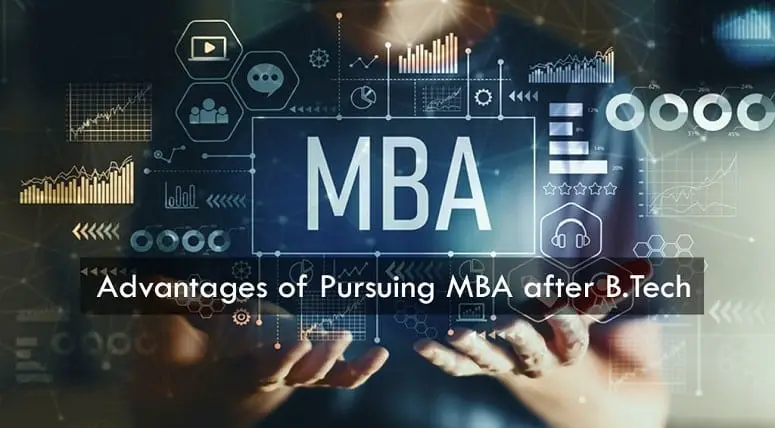After graduating from an engineering program, many engineers pursue an MBA to accelerate their career growth and to benefit from several other career factors. MBA students gain skills such as leadership capabilities, decision-making abilities, and soft skills by gaining an MBA degree after their B. Tech. When recruiting MBA graduates, companies prefer B.Tech graduates with a postgraduate degree as opposed to MBA graduates with just a master's degree.
-
In terms of hiring MBA professionals, B.Tech graduates with MBA are well known as the most sought after combination in the industry since they can handle both technical and managerial aspects of the job.
-
The combination of receiving both a B.Tech and a MBA gives graduates a competitive advantage when applying for jobs.
Why Pursue MBA after Engineering?
-
Most premier MBA institutions in India prefer graduates with some B.Tech engineering experience and lateral entry. This could also be due to their preference for engineers with 1-2 years experience when they recruit them during the admissions process. B.Tech graduates possess analytical and applied skills developed over the course of a professional degree.
-
In India, the B.Tech program is a rigorous graduate degree program of four years that focuses on the development of practical skills through laboratory and internship training, as well as inter-disciplinary knowledge of science, technology and humanities. Business management courses provide B.Tech graduates with a platform to enrich their knowledge and skills of finance, operations, marketing, human resources, and entrepreneurial skills. The combination of technical skills and managerial abilities of a B.Tech graduate with an MBA gives them an edge over a graduate without a B.Tech.
-
When recruiting MBAs, companies with a technology or operations focus, financial engineering, or innovation, prefer B.Tech students with MBAs.
-
Most premier MBA institutions in Delhi prefer graduates with some B.Tech engineering experience and as lateral entry. This could also be due to their preference for engineers with 1-2 years experience when they recruit them during the admissions process.
-
The fact that MBA graduates with a B.Tech degree have worked as engineers for 15 years lowers the company's cost and effort on hiring. boarding them. It is in the interest of the companies Satyam and Infosys to rehire MBAs with IT backgrounds who worked for their companies before joining their MBA programs.
There are many benefits an MBA degree can provide to graduates of B. Tech
-
As a masters qualification, MBA will broaden the career options for graduates with a B.Tech degree. Graduates in Computer Engineering are typically restricted to working for IT companies or in IT departments. A M.B.A., however, gives him/her the option of pursuing a career in HR, Marketing, Operations, Finance, etc. She may also start her own business.
-
As a result of an MBA, career advancement opportunities are enhanced. As a result, many B.Tech graduates pursue an MBA or MDP to develop the competencies needed for senior management. Also, many executive positions in the public and private sectors favor candidates with MBA qualifications.
-
The B.Tech with MBA combination is positioned for competitive advantage in today's economy, where innovation and entrepreneurship drive growth.
-
The other advantages of an MBA for a B.Tech graduate are better career options, better job profiles, and much better compensation.
Our team of MBA admission consultants provides step-by-step guidance to students from application to admission at Divi Educare.






